Pakistani herbal seeds’ successful return from China Space Station celebrated
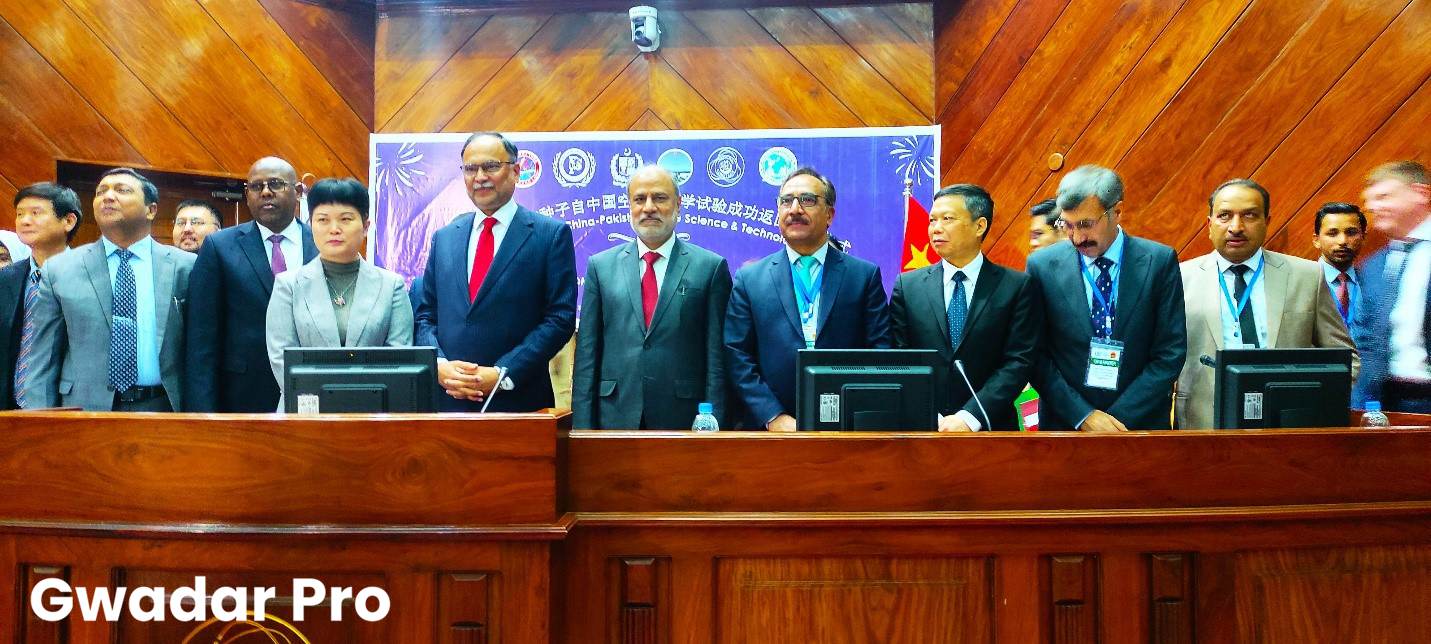
Group photo of Pakistani and Chinese officials. [Photo/Tahir Ali]
ISLAMABAD, Feb. 8 (Gwadar Pro) - As sending seeds for short trips to space helps scientists develop new varieties that can thrive in the changing climate and help feed the world’s growing population and also treat incurable diseases, China Manned Space Agency (CMSA) launched Pakistani herbal seeds into outer space in June 2022 and, after six months flying, returned them safely to the earth in December.
During a ceremony titled “China-Pakistan Space Science and Technology Cooperation”, Cao Zhouhua, Science Commissioner Chinese Embassy, handed over the seeds and the certification to Professor Iqbal Choudhary, Director International Center for Chemical and Biological Sciences ICCBS, Professor Liu Xinmin, Professor Dr. Yu and Professor Dr. Atia-tul-Wahab.
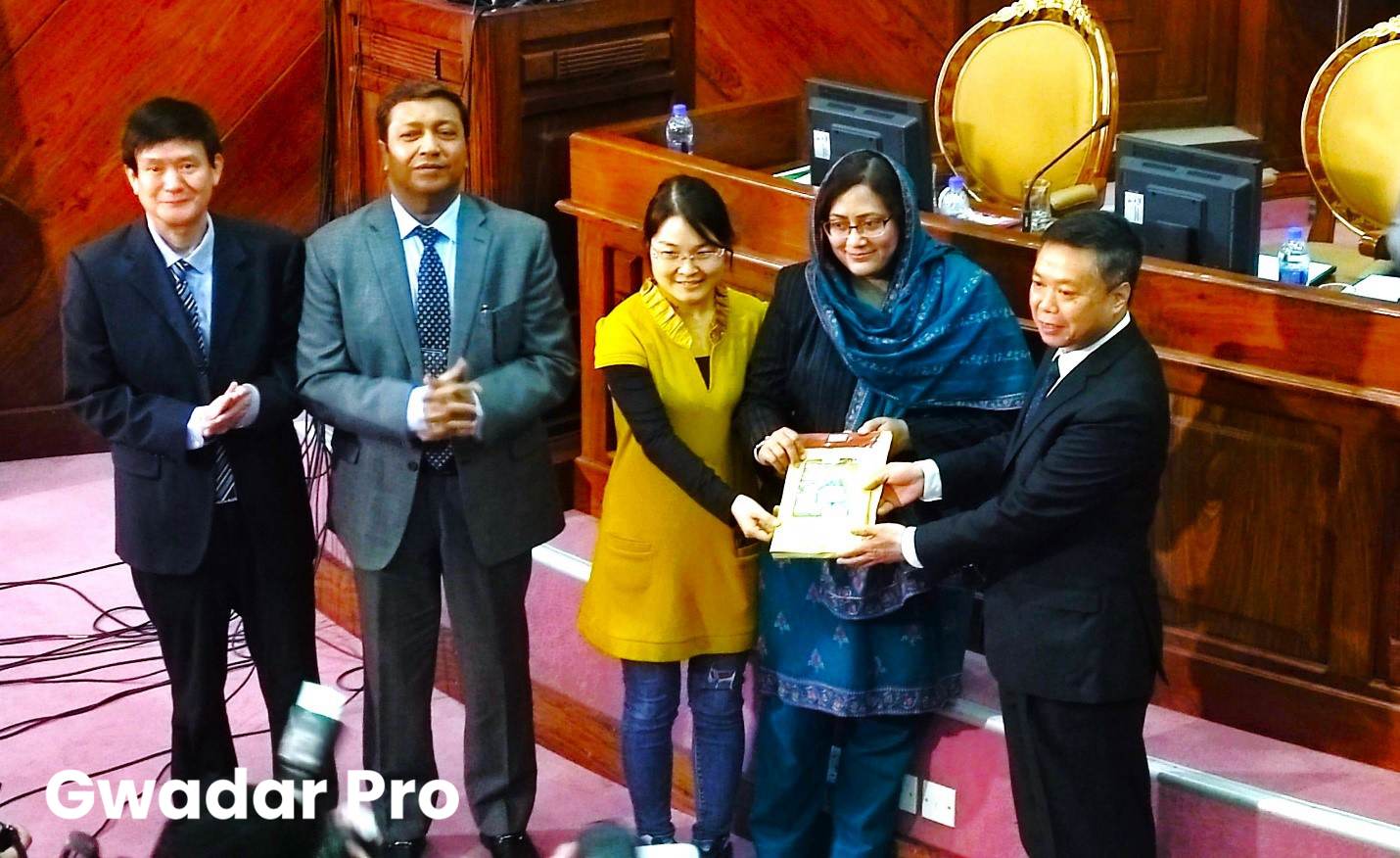
Dr. Atia-tul-Wahab and her colleagues receiving seeds from Chinse official. [Photo/Tahir Ali
Professor Ahsan Iqbal, Minister for Planning, Development and Special Initiative (PD&SI), said “Space technology is one of those technologies which is most critical for human development and security of any nation”, adding that “collaboration with China will open doors of development for us in future”.
Professor Dr. Liu Xinmin and Director Professor Iqbal Choudhary conceived the idea of sending Pakistani seeds into Chinese airspace station and as the idea was shared with Chinese Embassy, it took prompt action to make it happen. On June 5, the herbal seeds were launched into outer space carried by the Shenzhou-14 manned spaceship, and were returned to the earth with the Shenzhou-14 astronaut crew on December 04, 2022.
“Today is the beginning of astrobotany in Pakistan with the help of China; we will have very systematic research on those seeds and coming to work in this particular field in the future also,” said Professor Iqbal Choudhary, adding “We have collaboration in traditional Chinese medicines; western Chinese medicines are very close to Islamic medicine aka eastern medicines or Unani medicines”.
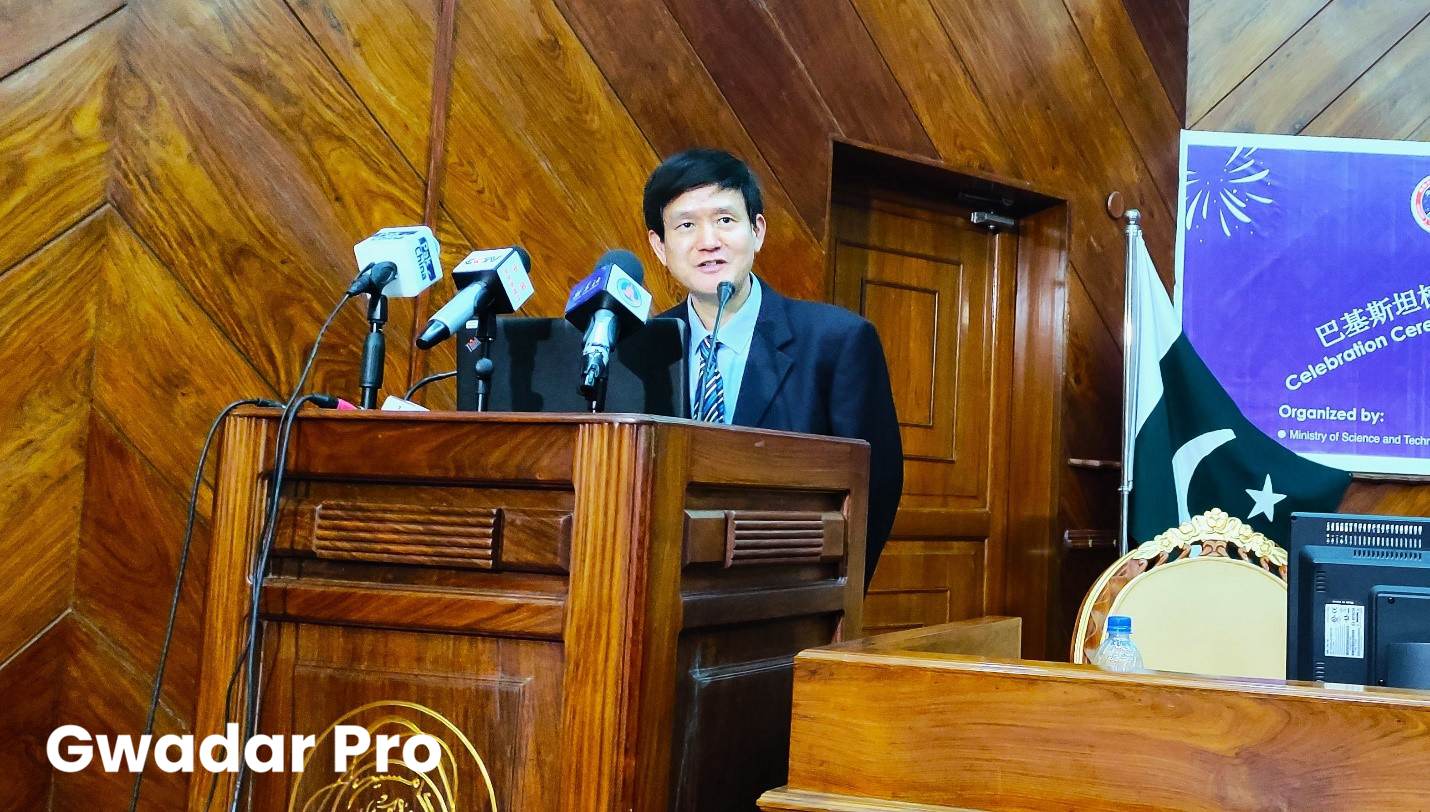
Professor Liu Xinmin expressing his views on China-Pakistan cooperation in medicinal plants. [Photo/Tahir Ali]
Professor Liu Xinmin while sharing his insights on “Chinese-Pakistan Cooperation on Medicinal Plants” said that China and Pakistan have a long history of traditional medicines: Traditional Chinese Medicines (TMC) in China and Traditional Unani Medicine (TUM) in Pakistan. “A large number of effective herbal medicines have made a significant contribution to maintaining the health of the people of both countries,” said Mr. Liu.
Earlier, Professor Shahid Baig, Chairman of the Pakistan Science Foundation (PSF) in his welcome address said that the prospects of collaborations are immense, and “I believe that these synergies between Pakistan and China will open up new horizons of economic and technological development”.
Pang Chunxue, Chargé d’Affaires of the Chinese Embassy in Pakistan, said that this is the first ever Pakistani seed to be sent to space; this experiment will be regarded in the history of China-Pakistan’s bilateral cooperation and friendship. “It is a landmark of our science and technology cooperation; which is an important part of our bilateral cooperation and relations,” she said.
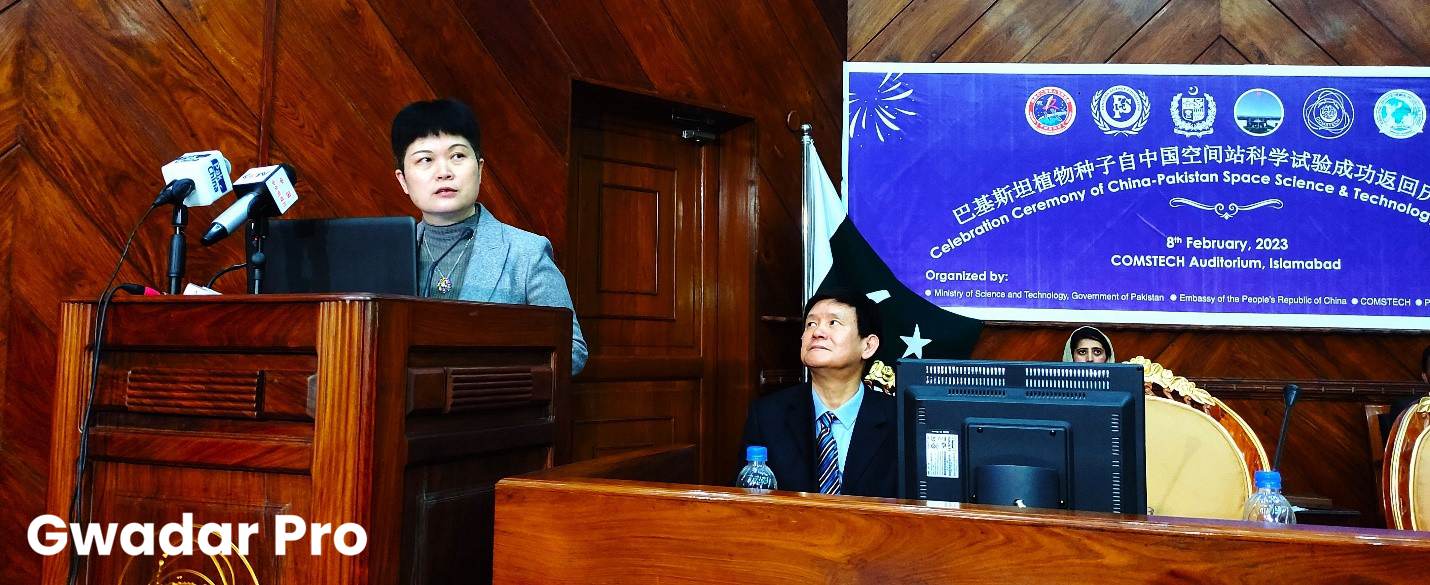
Ms. Pang Chunxue termed the experiment new chapter in Sino-Pak cooperation. [Photo/Tahir Ali]
During the ceremony, a Pakistani girl read out a letter sent to Chinese astronaut and a video reply from the astronaut was played on screen.
“Today, I am delighted to witness a Pakistani teenage interact with a Chinese astronaut via a letter and the astronaut responded via a video,” said Ms. Pang, adding that she firmly believed that the communication would surely help to light up the teenage space base and inspire her thinking and wisdom and more importantly sow the seeds in their heart about friendship.
Professor Dr. Atia-tul-Wahab in her presentation titled “Sino-Pakistan Cooperation in Medicinal Plants and Traditional Medicine, a landmark development,” discussed in detail the project of sending seeds to space.
What is the difference between space travel being to the seeds? Dr. Atia said that on Earth, we are protected from high-energy rays by the Earth’s magnetic field and thick atmosphere, but in orbit, spacecraft and satellites are constantly exposed to this radiation. Space radiation and microgravity and the condition of being weightless led to genetic mutations in the seeds that could generate random but potentially useful traits.
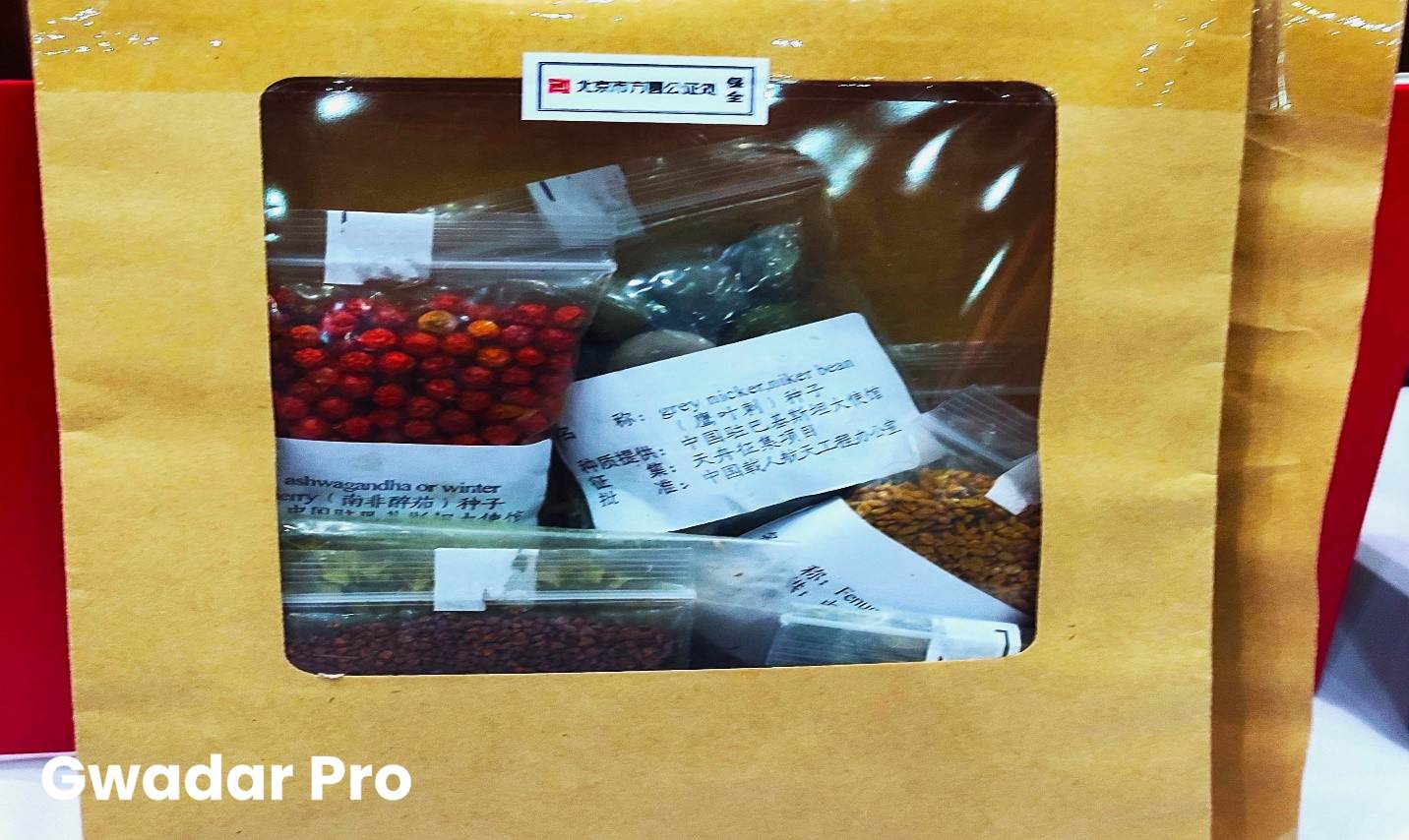
Seven herbal seeds returned from Chinese arrived from China Space Station. [Photo/Tahir Ali]
The seven seeds including fenugreek, Hina seed, land-caltrops (puncture vine), drumstick tree, winter cherry, nicker bean and Levant cotton. The seeds were exposed to unique conditions that cannot be reproduced in a laboratory on Earth. “We will germinate these seeds and will analyze the Phytochemical studies and then will make a comparison between the existing seeds here─ half of the seeds were sent to space and half of the same seeds were kept in the laboratory,” she said. Further, the plants will be grown together for comparative purposes and they will also be analyzed.




